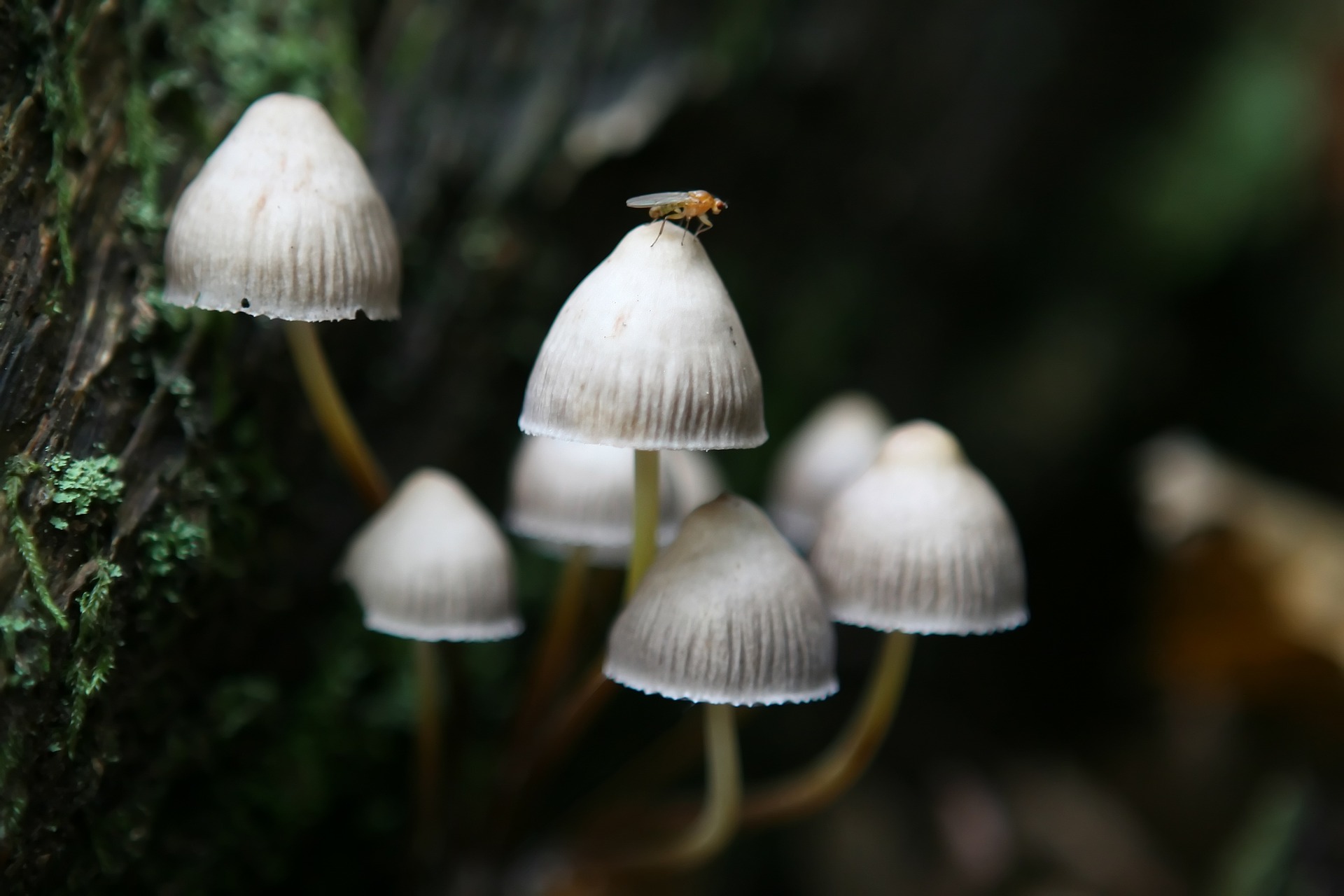When we think of psilocybin, we often imagine the recreational psychedelic drug that confers a multitude of hallucinogenic effects. The picture surrounding this chemical is rapidly changing, as studies are revealing its powerful effect over mental health disorders, like anxiety and depression, and how it can be utilised in their treatment. However, stigma surrounding the psychedelic class of drugs remains, halting their addition to drug markets despite a plethora of evidence supporting their use within mental health treatment. Here we will explore examples of mental health disorders psilocybin has been shown to ameliorate and investigate the stigma surrounding the compound, and how this can be overcome.
Psilocybin is a chemical compound produced by over 100 different species of mushrooms worldwide. Although, in a clinical setting, it is now often in a synthetic or semi-synthetic form. The compound is metabolised to the active ‘psilocin’, which activates serotonin receptors on excitatory and inhibitory neurons throughout the brain, modulating their activity. One may assume regions of the brain, usually inactive when sober, are activated to elicit the hallucinogenic effects of the drug. Surprisingly however, the opposite effect is observed, as psilocybin diminishes brain activity and connectivity. Thus, psychedelic drugs profoundly interfere with human perception and cognition, and may provide important evidence surrounding potential neuronal substrates involved in human consciousness.
A key area psychedelics target and reduce activity within is the default network pathway, the area of your brain that is responsible for every conscious decision you have and will make about your life. Your ‘self’ resides in the default mode of thinking. During the psychedelic state, your brain is somewhat ‘liberated’ from functioning around conscious demands seen in this default mode. Interestingly, it has been found that this area of the brain is hyperactive during depression, which correlates with the tendency of depressed patients to remain in a rigorous, limited thought pattern that is retrospective and negative.
Appreciating this connection, David Nutt of Imperial College London set out to investigate whether magic mushrooms could be used in the treatment of severe depression. The research team compared existing depression treatments (namely escitalopram) with psilocybin in their effects on reducing depressive symptoms, measured using the ‘Depressive symptomatology-self-report’. Results favoured psilocybin over the traditional antidepressant, with 22% improvement difference in patients who received the psychedelic. Psilocybin patients recount spiritual experiences, experiencing a novel freedom from past burdens. However, the researchers suggested these results may not be statistically significant, due to small unrepresentative sample sizes and the absence of a placebo-only control group. Although, results from the study offers a great starting point and significant evidence to suggest psilocybin may be used as an alternative treatment to traditional antidepressants, due to its reduced side effect profile and reduction of depressive symptoms.
Anxiety is another mental health disorder that has been shown to benefit from psilocybin administration. Some of the first pieces of research surrounding psilocybin clinical trials was the use of the compound in alleviating anxiety in 12 terminally ill cancer patients. Niacin was chosen as a control placebo as it replicated the warm flushing affect commonly seen upon psilocybin administration. Anxiety was found to significantly reduce in the psilocybin group compared to the placebo group, accompanied with a significant improved attitude towards death.
Outside of the clinic, it is becoming increasingly common for people suffering from anxiety to micro dose psilocybin, some report taking up to 10% of a full dose. Benefits such as improved mood, creativity boosts and heightened concentration have been described, as well as a general anxiolytic effect. A study by Kaertner et al in 2021 gave experimental evidence in the form of surveys that suggested micro dosing resulted in a significant improvement of anxiety. Therefore, despite lack of approved psilocybin available on the market, people are still exploring the use of psychedelic drugs in successfully managing mental health.
Why isn’t more research being done to prove psilocybin elicits powerful effects over mental health? Stigma surrounding psychedelics has existed since the 60’s, following President Nixon’s declaration of war on psychedelic drugs. This was in response to anti-Vietnam war counterculture, greatly associated with psychedelics, that cultured an anti-establishment narrative. Law reform (namely the ‘Controlled Substances Act’) on psychedelics resulted in their classification as a schedule 1 drug in the US, halting all on-going research and trials surrounding psychedelics in many research institutes over the world. As a result, as a scientific community, we have been unable to devote as much research as might’ve been possible. With limited exploration and scientific evidence comes limited scope for law reform and the passing of such drugs onto the market, thus explaining why psychedelics, like psilocybin, are yet to become successful licensed drugs.
However, the last 20 years have seen a renaissance within the scientific community regarding psychedelic research, as studies with potent experimental evidence points in favour of psilocybin and its ameliorative effects over mental health disorders. With reduction in stigma must come an increase in awareness, education and perception surrounding this class of drug. Perhaps educating ourselves and others with updated science and experimental results, rather than perpetuating existing fears and spreading false propaganda. The ability to treat mental health disorders globally would alleviate pressure from health services, reduce socioeconomic burdens and improve economies, such factors known to be a cause and consequence of such disorders. As a society, we should be welcoming novel research into this compound, of which there is plenty. For example, King’s College London alone has run 5 trials researching the compound and its effect on various neurological disorders within the last year.
This small insight into the complex compound that is psilocybin and the transformative effects it can have over mental health disorders shall hopefully alter some outlooks on the medical use of psychedelic drugs and how, through their de-stigmatisation, we can advance as a society that prioritises mental health over archaic historical feuds.






0 Comments